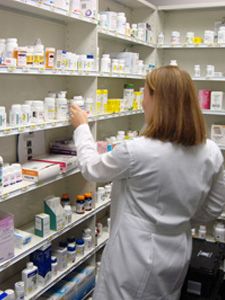 Q. Why is there a drug shortage?
Q. Why is there a drug shortage?
A: Drug shortages have tripled in the past six years. According to the FDA, 61 drug products were reported in short supply in 2005 and jumped to 178 by 2010—that doesn’t include shortages of vaccines, immune globulin products, and other biologics, or products made from blood, tissue, or other biological sources.
A major reason for these shortages has been quality/manufacturing issues. However, there have been other reasons, such as production delays at the manufacturer, and delays companies have experienced receiving raw materials and components from suppliers. Discontinuations are another factor contributing to shortages. Changes in reimbursement from Medicare and insurances make some drugs cost more to make than is received in payment. When one company has a problem or discontinues a drug, it is difficult for the remaining firms to increase production quickly and a shortage occurs.
Q. How do I know if a cancer drug I am taking is in short supply?
A: There is a list posted on the American Society of Health System Pharmacists (ASHP) website along with additional information.
Q. If a drug I am taking is listed, what should I do?
A: Just because a drug is listed on the ASHP website, it does not mean that GCS does not have it in stock. Our oncology-trained pharmacists control the inventory carefully, and alert our physicians when particular drugs may be in shorter supply. Our pharmacists have worked diligently to secure needed drugs before our supplies are exhausted. In the case of a drug shortage that may affect your regimen, your physician and care team will discuss any changes in treatment, side effects, and outcomes when you come to the office.
Q. How does my GCS doctor determine which drug I should receive if one of my drugs is not available?
A: GCS has a team of oncologists, pharmacists, and nurse specialists who confer with national experts to determine equivalent drugs. When there is no substitution for a drug, your GCS doctor will make sure that you receive the drug, even if it means going to another facility to receive the drug. When there is a substitution, rest assured that we will discuss it with you fully, and that the drug will be considered to be equivalent in treatment outcomes. Our nursing staff will discuss any side effects that may be different, and talk to you about this drug.
Q. I have been told that my drug is not available, however, a patient in the office received the same drug. Why?
A: Depending on the type of cancer or blood disorder, and its stage, there are different regimens that may or may not have a substitute. If there is not a substitute drug, those patients must receive a specific drug and it will be reserved for them. If there is a substitute regimen, those patients can safely receive other drug combinations that will have no difference in their treatment outcomes.
GCS is committed to making sure that every patient has the drug they need for an optimal outcome. If you have concerns, email them on our Ask the Doc page.